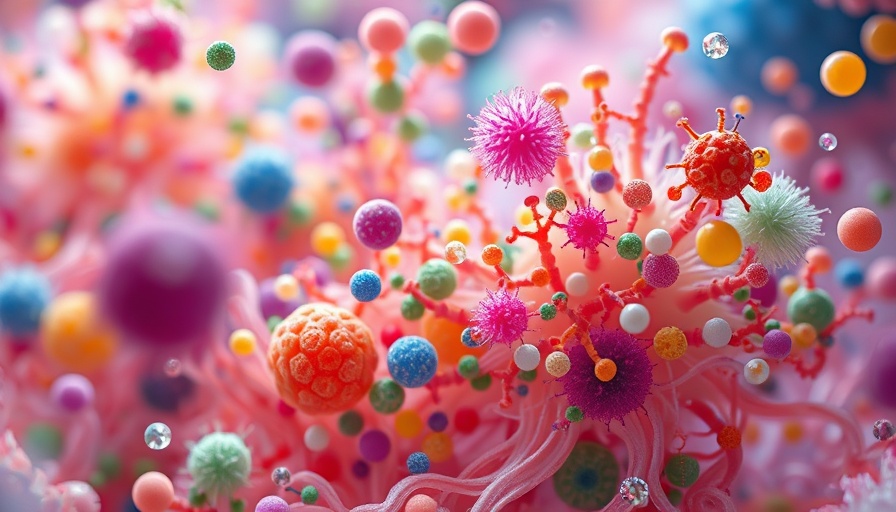
How the Gut Microbiome Influences Overall Health
The gut microbiome—the vast community of microorganisms residing in our intestines—plays an integral role in our overall health. Recent research from North Carolina State University highlights the profound influence of different protein sources on these microscopic inhabitants. As we grapple with various gastrointestinal diseases affecting millions globally, understanding our diet, especially the type of protein we consume, could be pivotal in promoting better health outcomes.
Unpacking the Research: Protein Sources Matter
In the study, researchers discovered that the diet’s protein source drastically altered the gut microbiome's makeup and function. Mice were fed distinct protein sources, including egg whites, brown rice, yeast, and soy. Astonishingly, the results showed that the composition of gut bacteria shifted dramatically with each dietary change. Brown rice, yeast, and egg whites had the most substantial effects, revealing that our food choices can dramatically shape our gut health.
Amino Acids, Glycans, and Their Health Implications
The study delved into amino acid metabolism and the degradation of complex sugars, known as glycans. Surprisingly, brown rice and egg white diets ramped up amino acid breakdown in the microbiome. This finding poses critical questions about our diets and their potential health impacts. Some amino acids could transform into toxins, while others may interact with the gut-brain axis, indicating the far-reaching consequences of our dietary choices.
The Role of Glycans in Gut Microbiome Function
Moreover, the research underscored the importance of glycans attached to dietary proteins in altering microbiome function. Various protein sources triggered significant changes in enzymes necessary for breaking down glycans—suggesting that dietary choices may not only impact digestion but also broader health implications. This relationship between proteins and gut bacteria illustrates a fascinating interplay that demands further exploration and understanding.
Real-Life Implications: Can This Help Us?
As more individuals become conscious of their health and wellness, it is essential to recognize how what we eat affects our internal ecosystems. Shifting toward proteins that promote a healthy gut microbiome may be vital in enhancing vitality and combating digestive issues. Engaging with nutritional products that accommodate these insights could empower individuals to take charge of their health.
What Can You Do?
Adopting a diet rich in diverse protein sources, including legumes, grains, and animal products, may provide the balanced nutrients required for optimal gut health. As interested individuals, consider incorporating plant-based proteins, fermented foods, and probiotics into your diet. Additionally, consult health professionals, particularly those specializing in lifestyle medicine or naturopathy, to create a personalized plan for lasting health benefits. With the right choices, one can enhance well-being and possibly prevent gastrointestinal diseases.
Conclusion: Embrace Change for a Healthy Gut
In conclusion, embracing a varied diet with multiple protein sources can offer significant benefits to our gut microbiome. As we continue to unravel the complex relationship between diet and health, understanding the implications of our food choices will be crucial. The insights from this research push us to rethink our eating habits for a healthier future. So why not explore new culinary horizons and invest in your gut health today?
 Add Row
Add Row  Add
Add 




 Add Row
Add Row  Add
Add 


Write A Comment